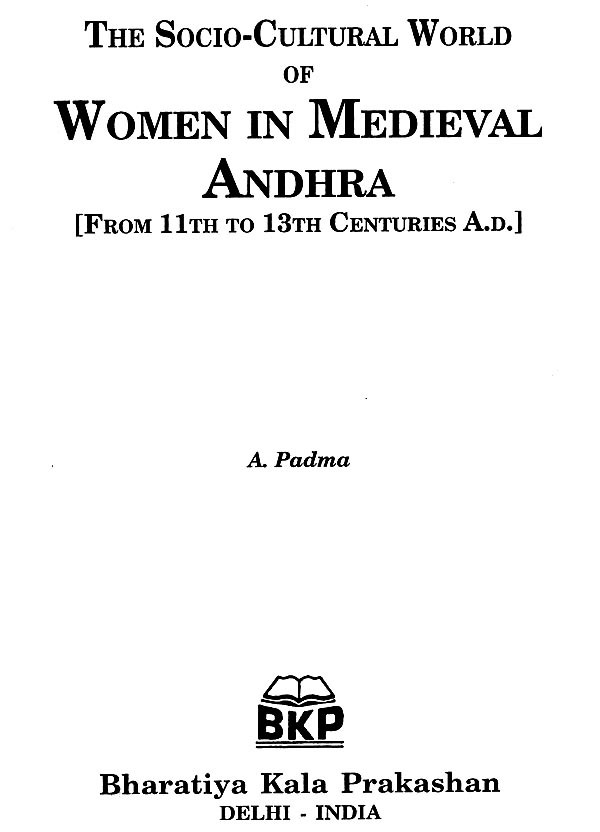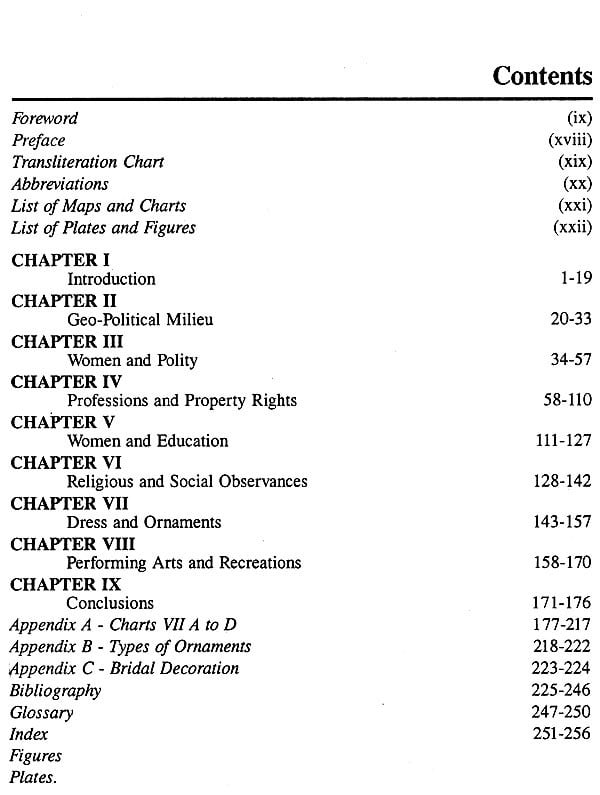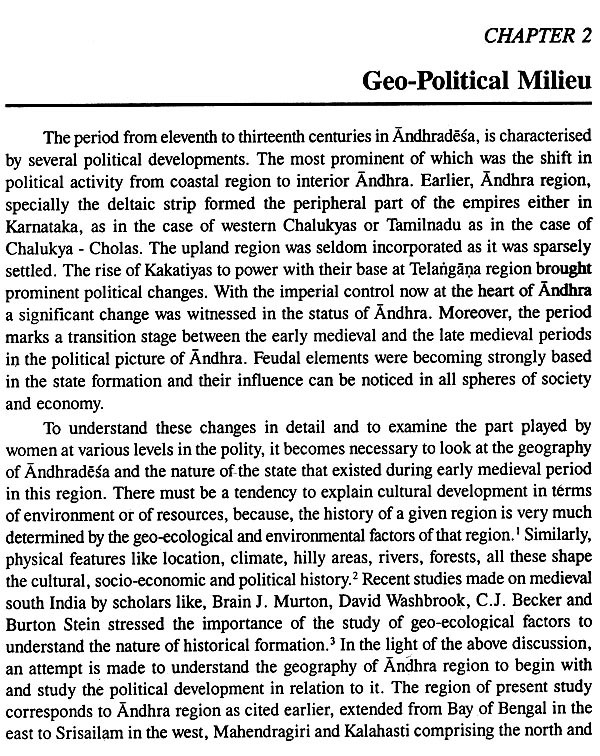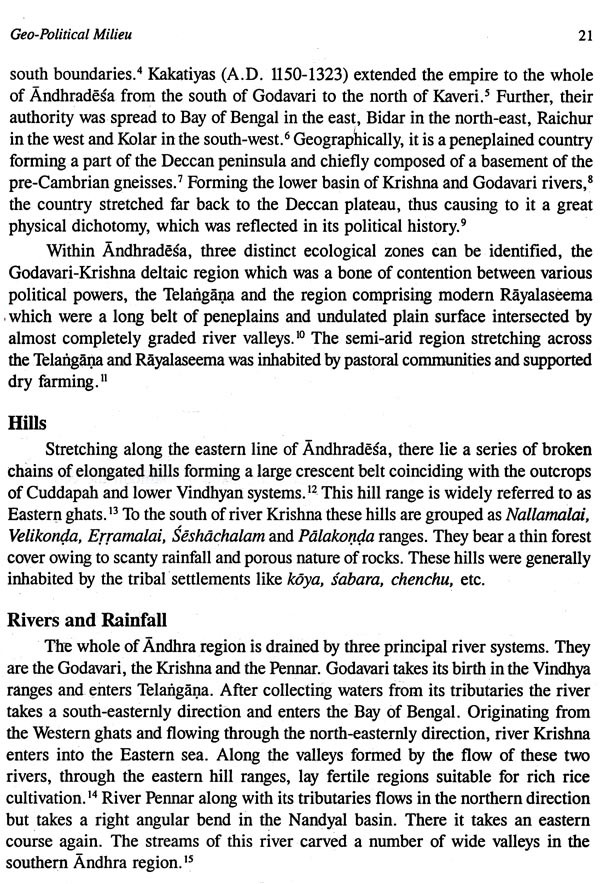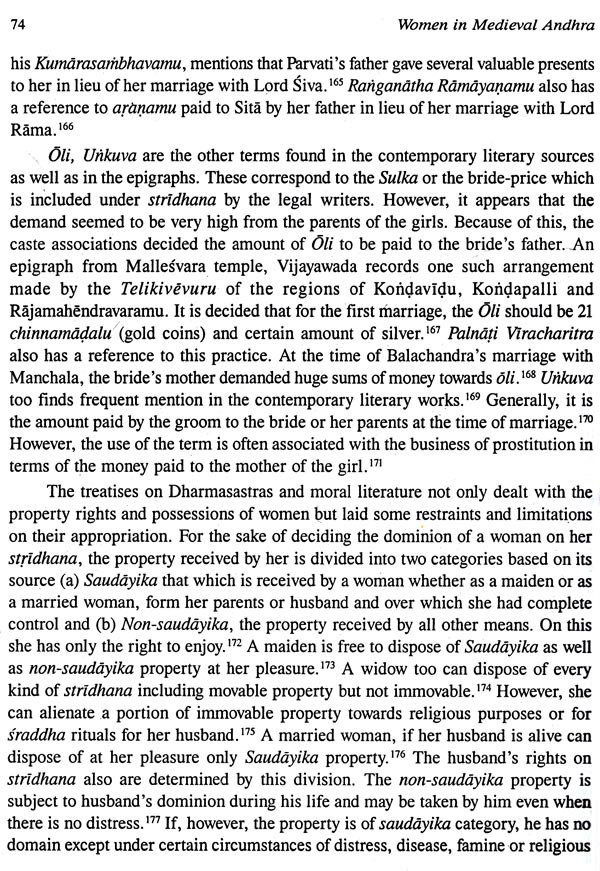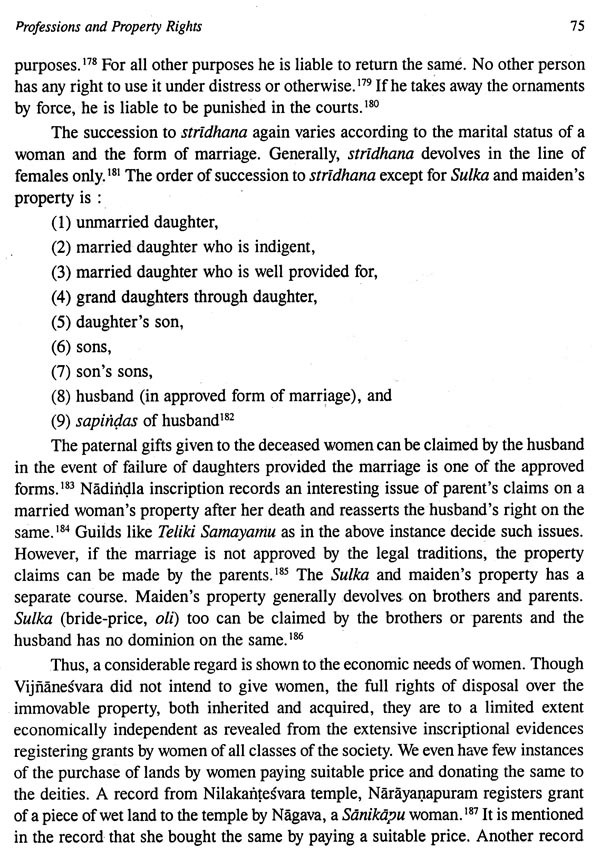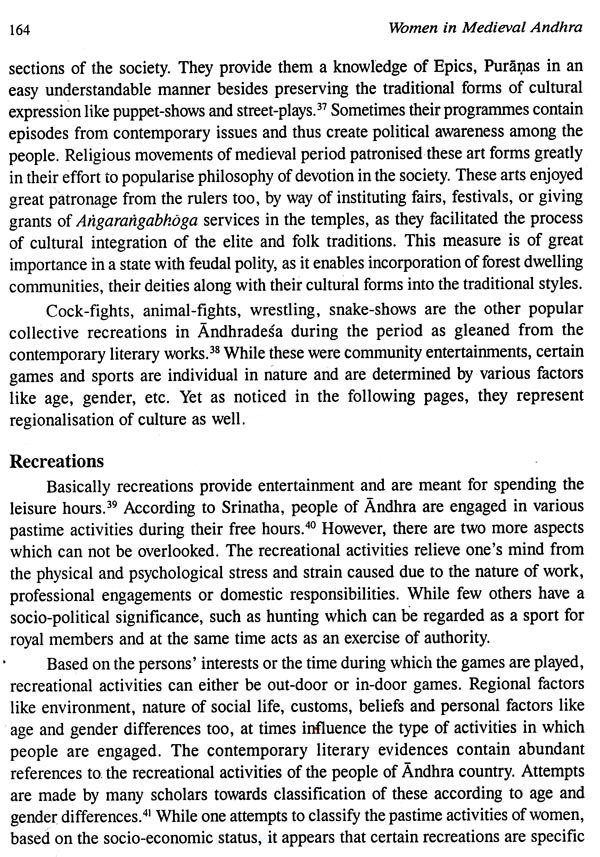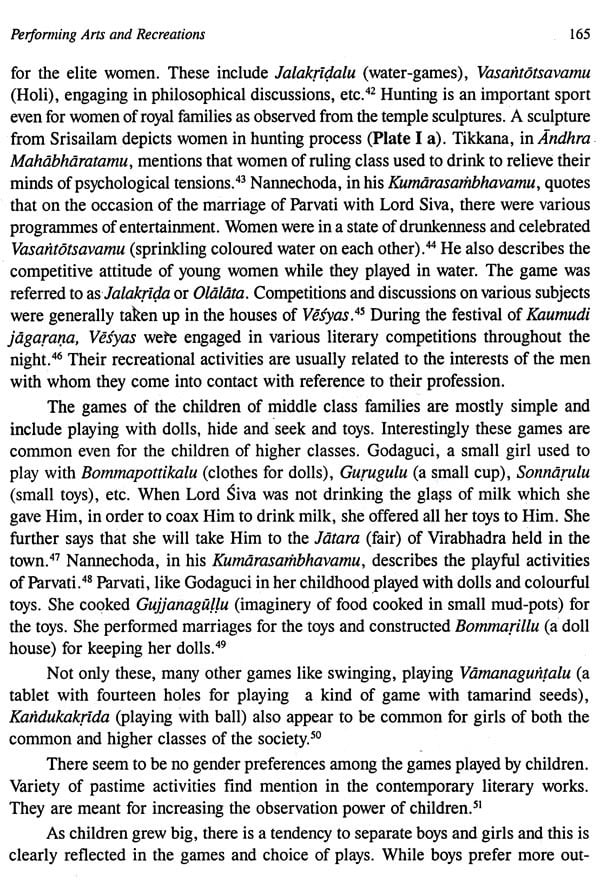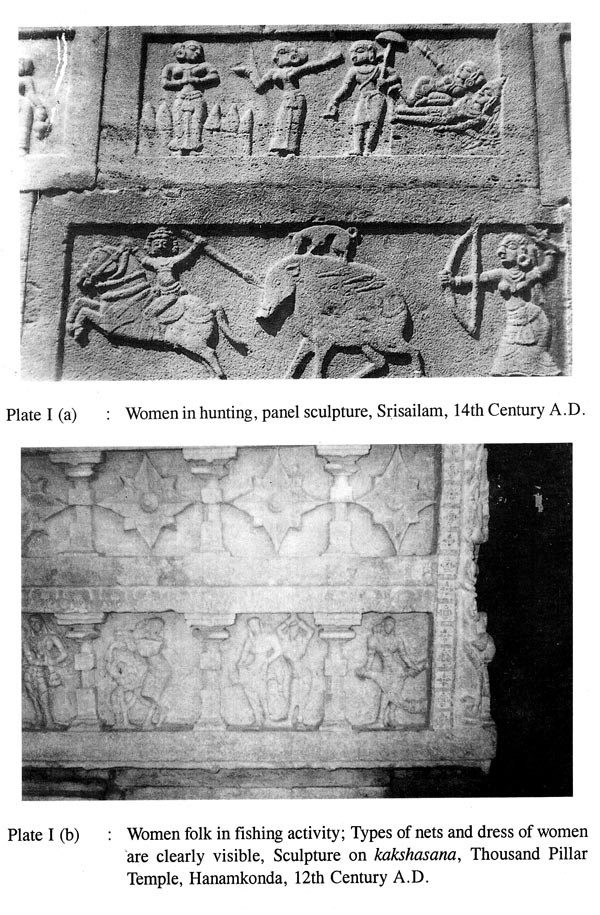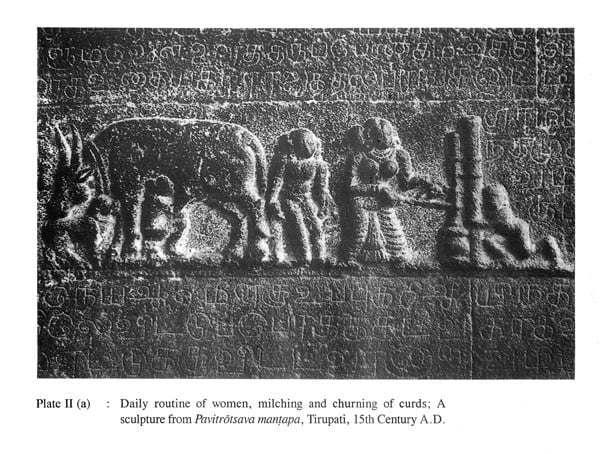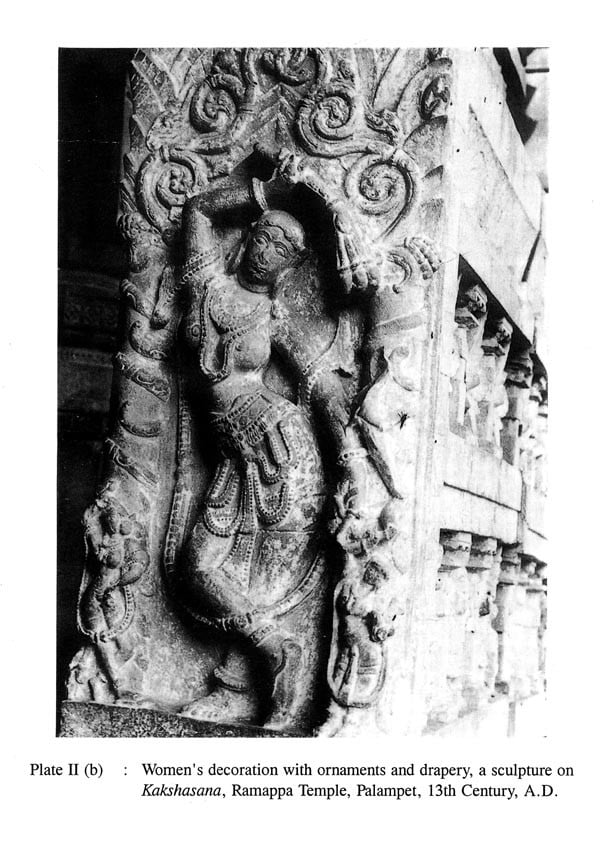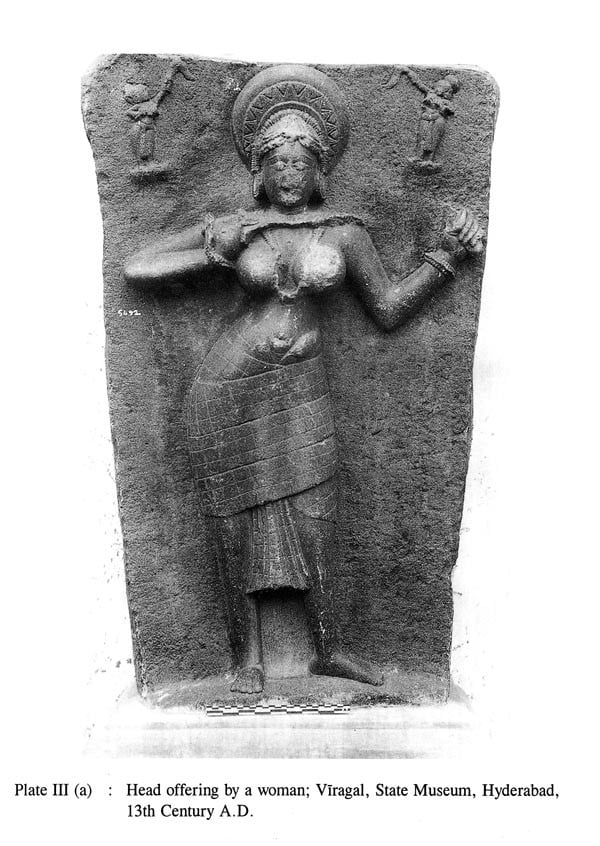
The Socio- Cultural World of Women in Medieval Andhra (from 11th to 13th Centuries A.D.)
Book Specification
| Item Code: | AZG568 |
| Author: | A. Padma |
| Publisher: | BHARATIYA KALA PRAKASHAN |
| Language: | ENGLISH |
| Edition: | 2001 |
| ISBN: | 8186050752 |
| Pages: | 256 (B/W Illustrations) |
| Cover: | HARDCOVER |
| Other Details | 9.50x7.50 inch |
| Weight | 740 gm |
Book Description
Through a contextual reading of source material, a sincere attempt is made to project the variations in the society as well as attempts of integration at the same time and the ensuing women's involvement in these.
The study, it is hoped, will make a useful contribution to women's history as we may note that in several aspects the status of women today does not seem to have changed much from the study period; particularly the importance of gender roles, status of widows and the victimization of women.
Dr. Padma has published various articles in Andhra history, religion, culture and women in different journals. She has been a member of IHC, SIHC and APHC. She has participated in National Seminars and Conferences and presented papers. She has also been associated with the research project. The Girl Child and Family sponsored by the Department of Women and Child Welfare, Min. of HRD, Govt. of India. She has 9 years teaching experience.
The present book is based on her Ph.D. dissertation, "Women in Medieval Andhra (from 11th to 13th Centuries A.D.)"
The present book entitled, Women in Medieval Andhra, From IIth to 13th Century, seeks to examine the place of women in the medieval Andhra region from a women's studies perspective. The main objective of this work has been to bring women to the center of the historical process in Andhra in medieval times by investigating into the various aspects of women's lives during this period. Most of the women's studies books in history concentrate on the European experience and there are very few books, which have attempted to look at women from women's perspective in the Indian context. The problem is more so with regional history, in the Deccan.
The gift of knowledge is the most precious one to receive. It is with this deep sense of gratitude, I thank my teachers Dr. Rekha Pande and Dr. P.S. Kanaka Durga (Dept. of Folk-Culture Studies) for their co-operation and constructive suggestions which immensely helped in widening my knowledge on the subject. The invaluable and lengthy discussions we had, during the course of my research have contributed greatly in giving ultimate shape to this book. Specially I thank Dr. Rekha Pande, who has immediately given her consent to write the Foreword.
I am greatly indebted to my examiners Prof. K.A. Parvathy and Prof. Rameshwari Varma who encouraged me for the publication of the thesis. Their suggestions have been incorporated and that greatly helped in refining the original version. I express my sincere thanks to them.
**Contents and Sample Pages**
